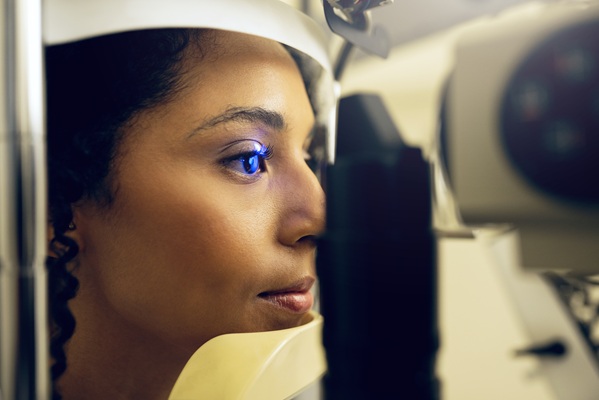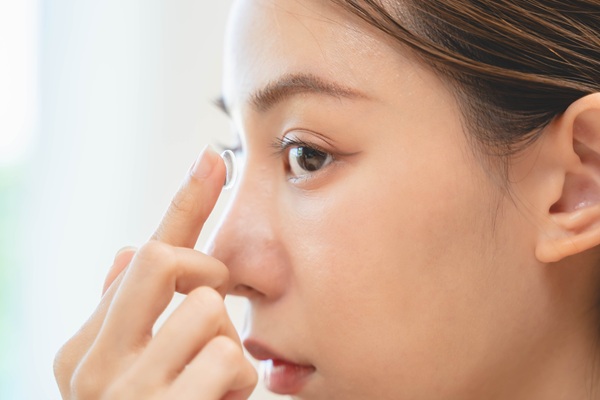At-Home Tips for Itchy Eye Treatment

Dealing with itchy eyes can be uncomfortable. While they typically do not last very long, they can be incredibly frustrating. Fortunately, there are several effective itchy eye treatment methods that you can try at home to alleviate the itchiness and find relief.
The cause of itchy eyes
There are many reasons that an individual may experience itchy eyes. These may include:
- Seasonal allergies
- Dry eye
- Contact lenses irritation
- Blepharitis
- Stye
- Pink eye (Conjunctivitis)
- Atopic dermatitis or eczema
- Debris getting stuck in the eye
Understanding the cause of itchy eyes can help people decide which itchy eye treatment method is best for them. For example, eyes that itch and burn during triggers, such as pollen, smoke, or perfumes, may indicate allergies. In other cases, those experiencing eye discharge may have pink eye.
At-home tips for itchy eye treatment
In most cases, those with itchy eyes do not experience symptoms for very long. They may even resolve on their own. Home remedies can help treat itchy eyes and resolve symptoms. However, it is important to consult an optometrist if the symptoms do not get better or worsen, affecting day-to-day life.
Cool compress
One of the quickest and easiest ways to soothe itchy eyes is to apply a cold compress. The individual can soak a clean washcloth in cold water, wring out the excess, and place it over their closed eyelids for a few minutes. The cold temperature can help constrict blood vessels, reduce inflammation, and provide immediate relief from itching and irritation. Repeat as often as needed.
Warm compress
For patients with an ingrown eyelash or a stye, a warm compress can provide more relief than a cool one. The warmth can help open the area and allow the eyes to drain. Warm compresses can relieve and soothe eye irritation and redness.
For a warm compress, fill a sock with dry white rice and microwave it for 15 seconds. Check to make sure the sock is not too hot before laying it directly over the eyelids for about five minutes. Repeat this method as needed throughout the day.
Eye drops
Dry eyes are a common cause of itching and discomfort. Over-the-counter eye drops can help lubricate the eyes and relieve dryness, which reduces the urge to itch them. Some eye drops are designed for allergies and redness, while others work for dryness. Additionally, be sure to look for preservative-free eye drops. Use the eye drops as needed throughout the day to keep the eyes moist and comfortable. Follow the instructions on the eye drops to prevent complications during use or overuse.
Eyelid scrubs
Daily eyelid scrubs can soothe red, itchy, and dry eyes by preventing the oil glands from clogging. Patients can consider purchasing eyelid scrubs on shelves over the counter. However, it is advised to consult an optometrist to determine which option will best meet the patient's needs. Many of these scrubs may involve using it for several days to help provide relief. If symptoms persist, patients should see an optometrist for other treatment options.
Saline eye flushes
Saline eye flushes can help flush allergens from the eyes. Common allergens include pollen, mold spores, pet dander, and particles from smoke and perfume. For those with allergies, a saline flush can help provide relief after being outdoors or around specific triggers. However, be sure to use sterile saline designed for eye care. Do not use homemade saline or tap water to flush the eyes.
To use a saline flush, the individual should wash their hands and remove their contacts if they are wearing them. Then, they need to tip their heads to the side and gently pour sterile saline into their eye, letting it come out the other side. It is okay to blink; people doing a saline eye flush should not force their eyes to stay open. Once done, they can tip their heads in the other direction and repeat the process to flush their other eye.
When to consult an optometrist
Red, itchy eyes are typically not a sign of something serious. However, patients should consult an optometrist as soon as possible if they begin to notice the following:
- Vision changes
- Eye pain or infection
- Sudden sensitivity to light
- Double vision
- Draining in one or both eyes
- Feels like something is lodged in the eye
If at-home itchy eye treatment has not relieved symptoms after two or three days, it is important to see an optometrist. They can perform an eye exam to help determine what is causing their eye symptoms. The optometrist may also recommend prescription treatment options to relieve eye symptoms.
You do not have to suffer from itchy eyes
The Texas Optical team understands that itchy eyes can be frustrating and uncomfortable. We hope that these at-home itchy eye treatment tips provide the relief you need. However, if your symptoms persist or worsen, be sure to reach out to our office to schedule an appointment.
Request an appointment here: https://www.texasoptical.net or call Texas Optical at (214) 771-7333 for an appointment in our Dallas office.
Check out what others are saying about our services on Yelp: Read our Yelp reviews.
Recent Posts
For those living with diabetes, undergoing a diabetic eye exam is one of the most important steps in protecting their vision and overall eye health. High blood sugar levels can lead to a range of complications, including conditions that damage the eyes over time. These exams help detect these issues before they become serious, allowing…
Contact lenses provide clear vision and convenience for individuals who prefer an alternative to eyeglasses. However, proper care and maintenance are essential to prevent infections, irritation, and eye damage. Neglecting hygiene practices can lead to serious eye conditions, including corneal ulcers and keratitis. Understanding how to clean, store, and handle contact lenses ensures long-term eye…
Maintaining eye health and preventing long-term issues is the result of consistent and quality vision care. Many people focus on overall wellness but may overlook daily habits that support healthy eyesight. However, taking simple steps each day can protect vision, reduce eye strain, and prevent future complications. By making eye health a priority, it is…
Prescription contacts provide vision correction, comfort, and convenience for those who do not want to wear glasses. However, caring for and wearing contacts takes some getting used to. Learning to insert, remove, and maintain them will help ensure a comfortable and safe experience.Not all contact lenses are the same, and choosing the right pair is…


